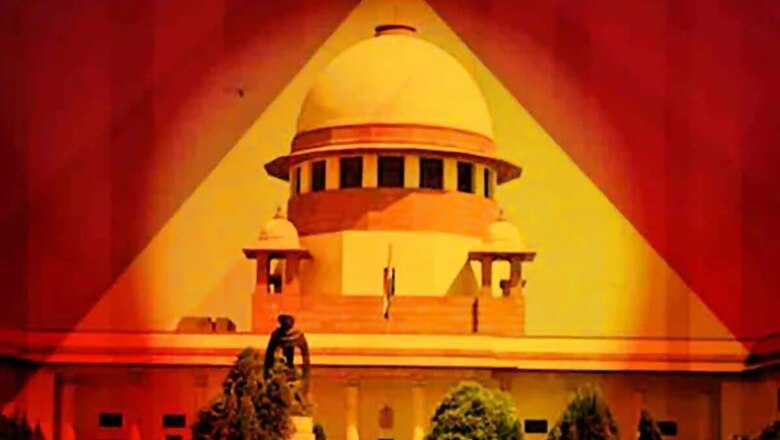
views
The Supreme Court on Thursday questioned the relevance of “colonial” era sedition law as it issued a notice to the Centre asking, “Is this law still needed after 75 years of independence?” The apex court has agreed to examine a fresh plea by a former army officer challenging the Constitutional validity of the sedition law on the ground that it causes “chilling effect” on speech and is an unreasonable restriction on free expression, a fundamental right.
A bench comprising Chief Justice N V Ramana, A S Bopanna and Hrishikesh Roy directed the petitioner to serve a copy of the plea to the Attorney General K K Venugopal.
What is Sedition Law?
The Section 124-A of the Indian Penal Code, which deals with the offence of sedition, states: “Whoever, by words, either spoken or written, or by signs, or by visible representation, or otherwise, brings or attempts to bring into hatred or contempt, or excites or attempts to excite disaffection towards, the government established by law in India, shall be punished with imprisonment which may extend to three years, to which a fine may be added; or, with fine.
Point of Contention:
The plea, filed by Major-General S G Vombatkere (Retd) submitted that Section 124-A is wholly unconstitutional and should be unequivocally and unambiguously struck down”. The petitioner contends that a statute criminalising expression based on unconstitutionally vague definitions of ‘disaffection towards Government’ etc. is an unreasonable restriction on the fundamental right to free expression guaranteed under Article 19(1)(a) and causes constitutionally impermissible ‘Chilling Effect’ on speech”, the plea said.
Hearing the pleas, Chief Justice of India NV Ramana observed, “Sedition is a colonial law and was used by British and suppress freedoms and used against Mahatma Gandhi, Bal Gangadhar Tilak.”
“If you see history of charging this section, conviction rate is very low. alarming numbers of misuse,” he added.
SC said the situation can be compared to a carpenter using a saw to cut a tree but the entire forest. “Our concern is misuse of the law and no accountability of the executive,” said the Apex Court.
Earlier, a separate bench of the top court had sought response from the Centre on a plea challenging the Constitutional validity of sedition law, filed by two journalists — Kishorechandra Wangkhemcha and Kanhaiya Lal Shukla — working in Manipur and Chhattisgarh respectively.
Here are some of the recent and prominent cases of sedition:
Climate Activist Disha Ravi:
Climate activist Disha Ravi was arrested by Delhi Police on February 13, 2020 for allegedly being involved in sharing on social media a “toolkit” related to the ongoing farmers’ protest against the Centre’s three new agri laws, and was granted bail by a trial court in Delhi on February 23. The creation of a WhatsApp group or being the editor of an “innocuous Toolkit” is not an offence, the court had said. The Delhi Police had contended that the Google document tweeted by Swedish climate activist Greta Thunberg to back the farmers’ protest and then deleted, was created by Ravi and two other activists — lawyer Nikita Jacob and activist Shantanu Muluk. Ravi was charged with conspiracy and sedition.
Red Fort Violence on Republic Day:
Earlier this year, the Delhi Police registered a sedition case in connection with the violence at Red Fort during a tractor parade by farmers on Republic Day. A case under section 124A (sedition) of the Indian Penal Code (IPC) was registered. The Delhi Police had previously named actor Deep Sidhu and gangster-turned-social activist Lakha Sidhana in an FIR lodged in connection with the Red Fort incident. On Republic day, thousands of protesting farmers, who reached ITO from the Ghazipur border, had clashed with the police. Many of them, driving tractors, had reached the Red Fort and entered the monument. They had hoisted flags on the domes and placed the flagstaff at the ramparts of the national monument, where the national flag is unfurled by the prime minister on Independence Day.
Kerala Journalist Siddique Kappan:
Kerala-based journalist Siddique Kappan and three other people said to have links with alleged radical group Popular Front of India (PFI) were booked for sedition in October last year. They were arrested on way to Hathras following the death of a 19-year-old Dalit woman who was allegedly gang-raped on September 14, 2020 in a village in the district. Her cremation at night by the authorities, allegedly without the parents’ consent, had triggered widespread outrage. The PFI has been accused of funding protests against the Citizenship Amendment Act (CAA) across the country earlier this year and the UP Police had sought a ban on the outfit.
Assam Activist Akhil Gogoi:
Last year, peasant leader and activist Akhil Gogoi was charged with sedition under Section 124A of the IPC. Reading the ‘Communist Manifesto’, Lenin’s works, Mao’s life, calling friends ‘Comrade’ and greeting them with ‘Lal Salaam’ were among the reasons cited by the NIA for charging Gogoi under sedition and anti-terror laws. The National Investigation Agency filed the charge sheet before the Special Judge, NIA, in Guwahati on May 29 under sections 120B (criminal conspiracy), 124A (sedition), 153A (promoting enmity between two groups on grounds of religion, race etc), 153B (imputations, assertions prejudicial to national integration) of the IPC. Provisions of sections 18 and 39 of the stringent Unlawful Activities (Prevention) Act, an anti-terror law, were also invoked against him and three others.
JNU Sedition Case:
Former JNU students union president Kanhaiya Kumar and nine others including Umar Khalid and Anirban Bhattacharya were charged with sedition in 2016. According to the police chargesheet, Kumar was accused of leading a procession and supporting, along with other accused, seditious slogans raised on the JNU campus on February 9, 2016, during an event to mark the hanging of Parliament attack convict Afzal Guru. The accused face charges under IPC sections 124A (sedition), 323 (voluntarily causing hurt), 465 (forgery), 471 (using as genuine a forged document or electronic record), 143, 149 (being a member of an unlawful assembly), 147 (rioting) and 120B (criminal conspiracy).
(With inputs from PTI)
Read all the Latest News, Breaking News and Coronavirus News here.










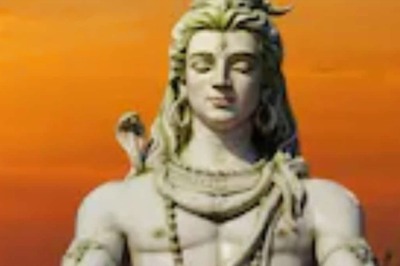


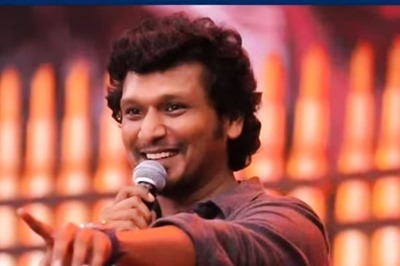

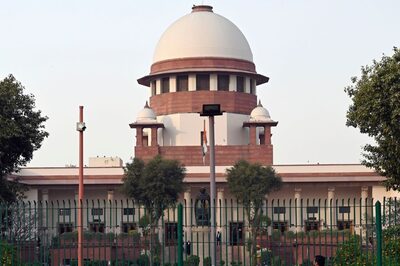
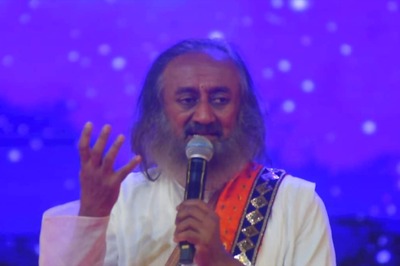



Comments
0 comment